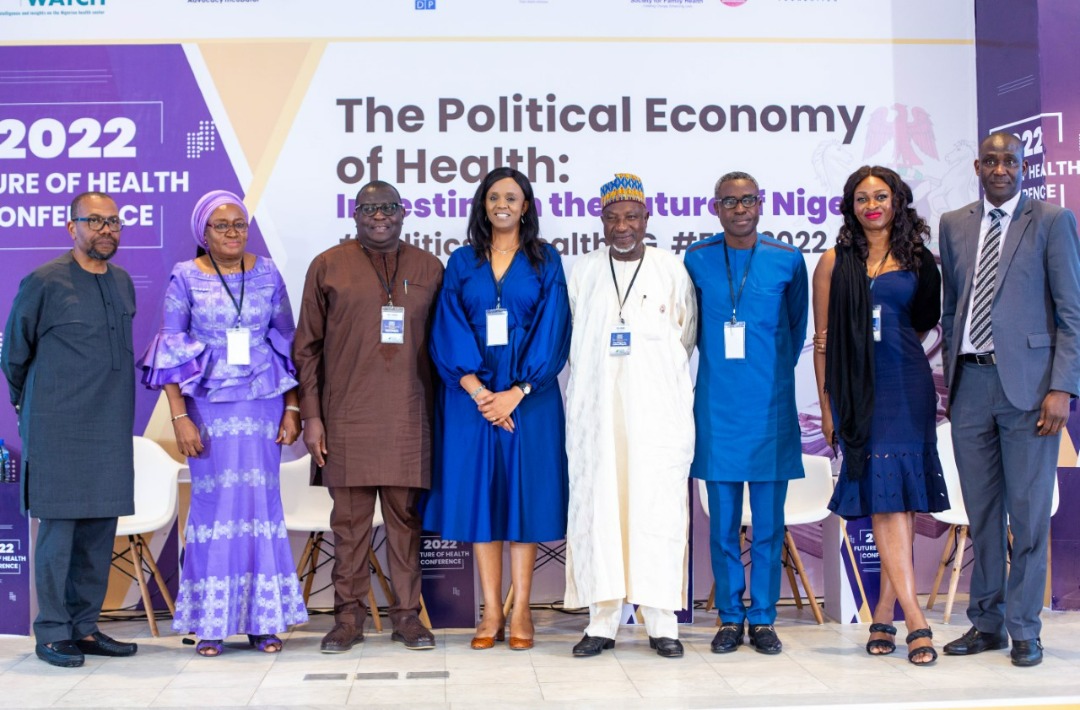By Bunmi Oyebanji Obot, Kemisola Agbaoye and Chibuike Alagboso (Lead Writers)
Nigeria’s political aspirants have officially started their election campaigns for the 2023 Presidential elections. There is no better time than now, during this political transition to remind political leaders that health is as critical to a nation’s development as the economy, infrastructure, security and other priority issues and health must take its rightful place of prominence in the political discourse.
For that reason, at the 8th edition of the Future of Health Conference themed ‘The Political Economy of Health: Investing in the Future of Nigeria’ delegates from the public and private sector including civil society organisations, national and subnational government representatives, private sector, academia, and multilateral organisations convened to discuss the political determinants of health that shape the distribution of resources; and the interplay between the political, social, and economic factors that shape individual and population health outcomes; and how to create a national health service that meets the needs of all Nigerians.
Opening the conference, Vivianne Ihekweazu, Managing Director, Nigeria Health Watch said, “We understand the influence of political will and action on health; therefore, we chose the 2022 Future of Health Conference theme to redefine what the health agenda should be. This current political season affords us a window of opportunity to put health on the agenda of the political discourse”. Considering that Nigeria’s health policies and strategies have not changed much since colonial times, this season also offers the opportunity to strategically think about how best to deliver health and health care to Nigerians.
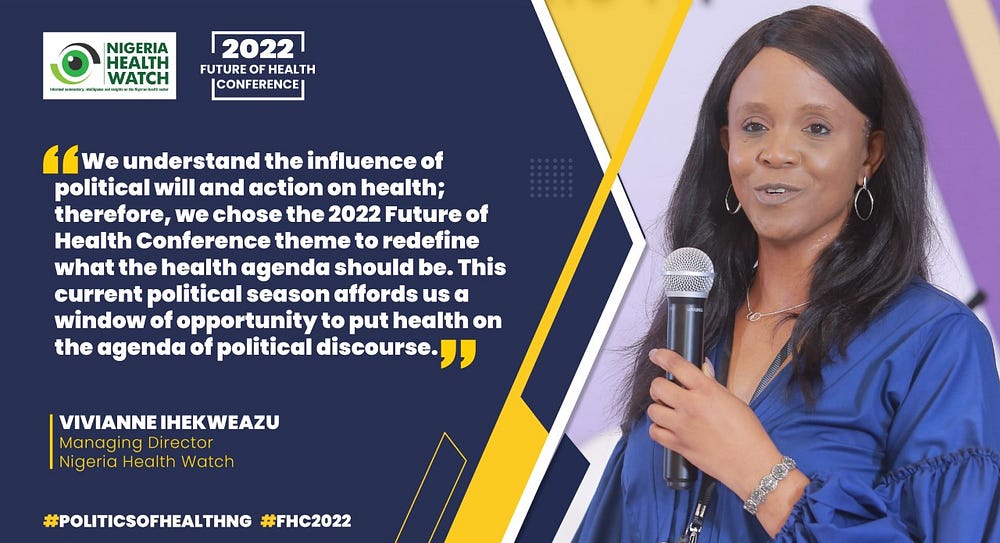
In his keynote address, Ben Akabueze, Director General (DG), Budget Office of the Federation, represented by Professor Olumide Ayodele, Senior Technical Adviser to the DG said that it is critical for governments at all levels to remember that providing effective health care services is their primary responsibility and primary health care services for Nigerians, particularly at the community level must be prioritised, in planning, funding and service delivery.
Professor Ayodele added that despite the relatively low allocation of funding to health, investments will serve as a catalyst for innovation and revenue generation and growth. “It is therefore important to make significant investment into health to ensure that we have the capacity to do more,” he said.
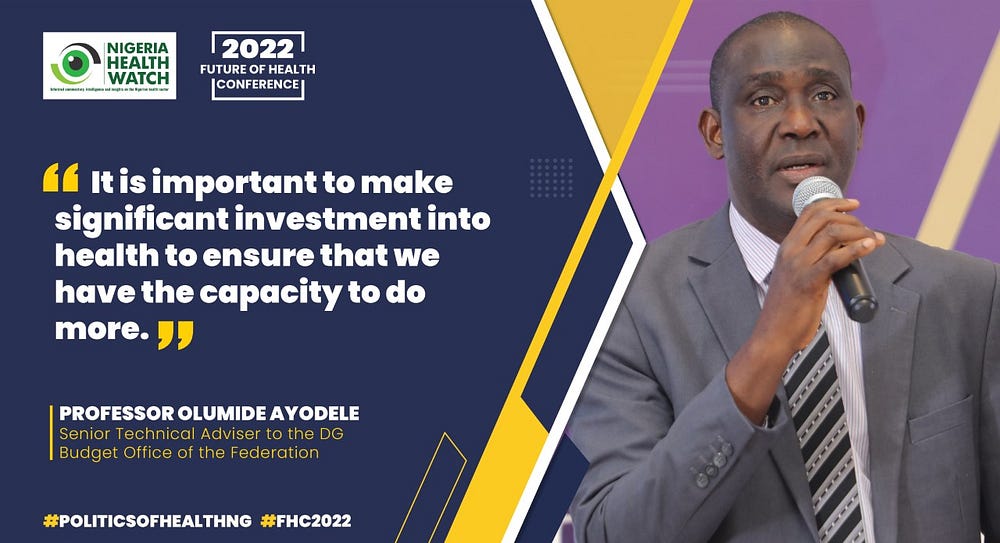
He noted that although the government is keen to invest more into the health sector, they are also faced with other competing interests, such as security, agriculture and environment; all equally important. The competing priorities for political leaders are notable, however, evidence abounds on the importance of healthcare investments in other sectors of the economy.
Bringing a private sector perspective to the conversation, Hakeem Belo-Osagie, Chairman Metis Capital Partners, in his opening presentation said that any government that cares about the health of its people should invest heavily in health because “It takes political will to improve population health”.
The panel discussions then delved into the economy of health, politics and health and sub-national political leadership in health.
The Economy of Health — the economic cost of poor health prioritisation and the economic benefits of prioritising health.
Panelists spoke to salient issues surrounding national health development and the economic and political values attached to it.
Nigeria’s National Development Plan (NDP) 2021 to 2015, is designed to unlock the country’s potentials in all sectors of the economy for a sustainable, holistic and inclusive national development. According to Dr. Sarah Alade, Special Adviser to the Nigerian President on Finance and Economy, “One of the four pillars of the Plan is to enable a healthier and more educated populace”. She recommended that significant investment be devoted to the aggressive upgrade of health infrastructure in Nigeria. More importantly, technology should be leveraged to drive service delivery and data aggregation in the Nigerian health sector.
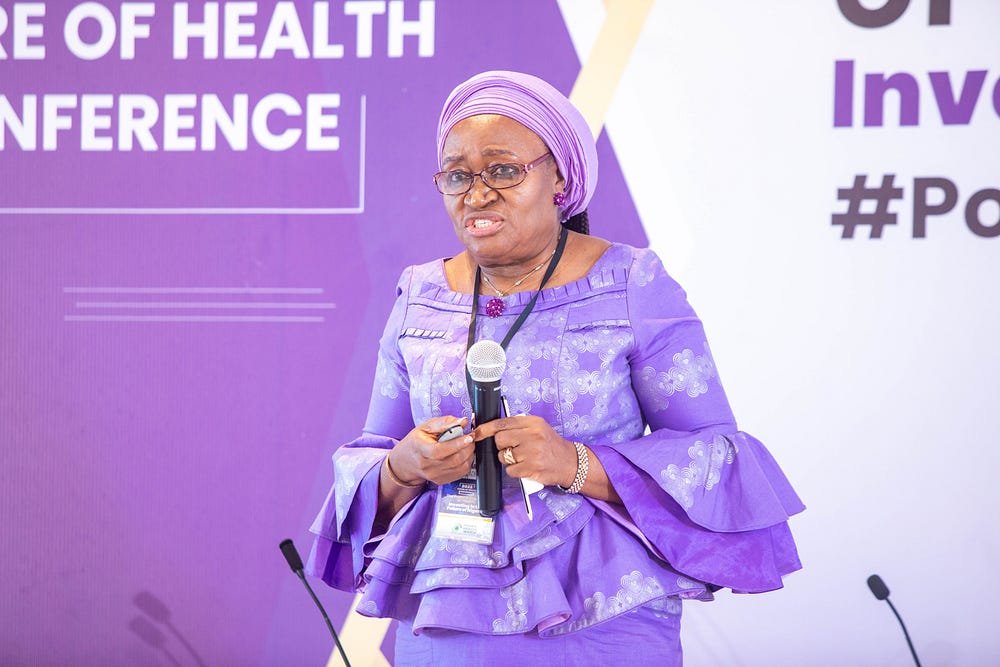
Increasing investment in critical infrastructure, developing a framework for joint financing of infrastructure projects between the tiers of government, and encouraging private investment in infrastructure are some of the critical areas of interest identified by the plan.
Building on the call for increased investment in Nigeria’s health sector Professor Obinna Onwujekwe, Professor of Health Economics and Policy and Pharmacoeconomics and Lancet Nigeria Commissioner, observed that although health is an investment, with an often-overlooked connection to development, it is habitually perceived as a consumer expenditure and not a contributor to social and economic development. He advocated for multistakeholder collaborations for increased investment, as well as multistakeholder collaboration and political participation in health. There is no better example of this than the critical role played by the organised private sector in supporting Nigeria’s pandemic response. Private sector investments can further be harnessed to improve health prioritisation.
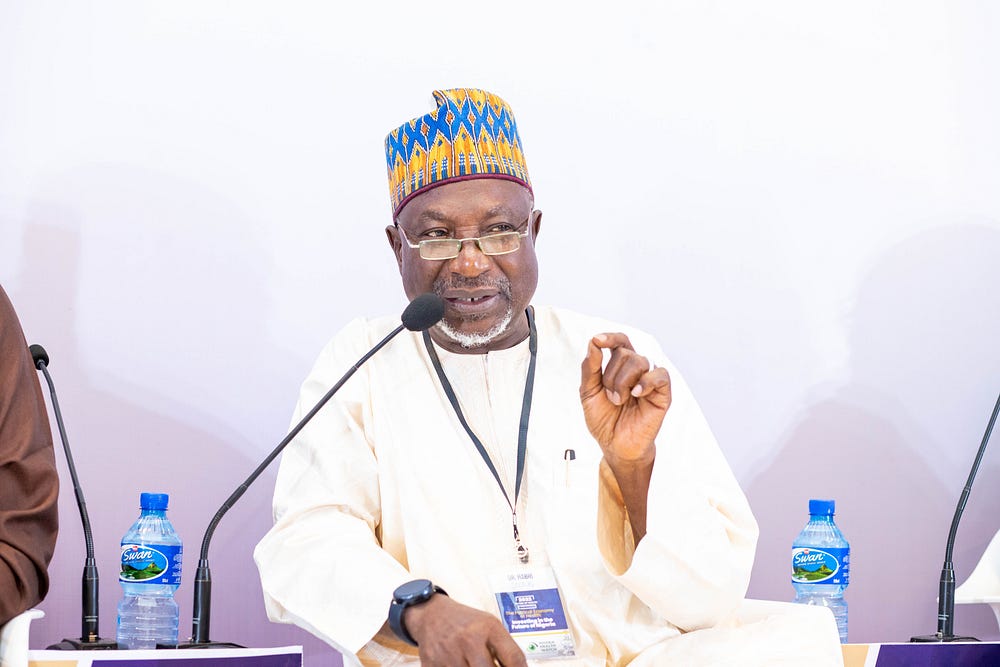
Relating the importance of increased investments to critical health issues, Dr. Habib Sadauki, National President, Society of Gynaecology and Obstetrics of Nigeria (SOGON) said, “Health financing is a major determinant of the health of the people,” while highlighting the fact that maternal mortality, under-5 mortality, low contraceptive use, and malnutrition, among others, are strongly related to economic development. Therefore, if Nigeria gets health financing right, it will improve human capital, which will in turn improve national socioeconomic and political development.
Dr. Ola Brown, Founder, Flying Doctors Investment Company added that increased investment in healthcare can indeed solve all of Nigeria’s problems. A bold assertion which she backed by adding that for this to be achieved, Nigeria’s healthcare reforms must be approached from a broad range of perspectives. “We need to look at Nigeria’s healthcare in a holistic way, not just how to solve healthcare problems but also how to solve the country’s problems as a whole”.

Rounding up the discussion, Onoriode Ezire, Senior Health Specialist at the World Bank closed by highlighting the important contribution of healthcare investments in the economy, “Investment in health is directly related to the growth of the economy,” adding that an investment in health will contribute to reducing inequality and promote shared prosperity.
Politics and Health — charting a course of action to set Nigeria on course for achieving UHC.
Globally, from institutional strengthening geared towards achieving universal health coverage (UHC) to investments in health security and provision of family planning services, every positive health outcome was made possible because of strong political will. However, it begins with creating an inclusive environment where citizens contribute to co-creating the health outcomes they desire and holding leaders accountable to their commitments, said Dr Amina Dorayi, Country Director, Pathfinder International, adding that citizen inclusion is a key factor that can either facilitate or deter progress in healthcare.
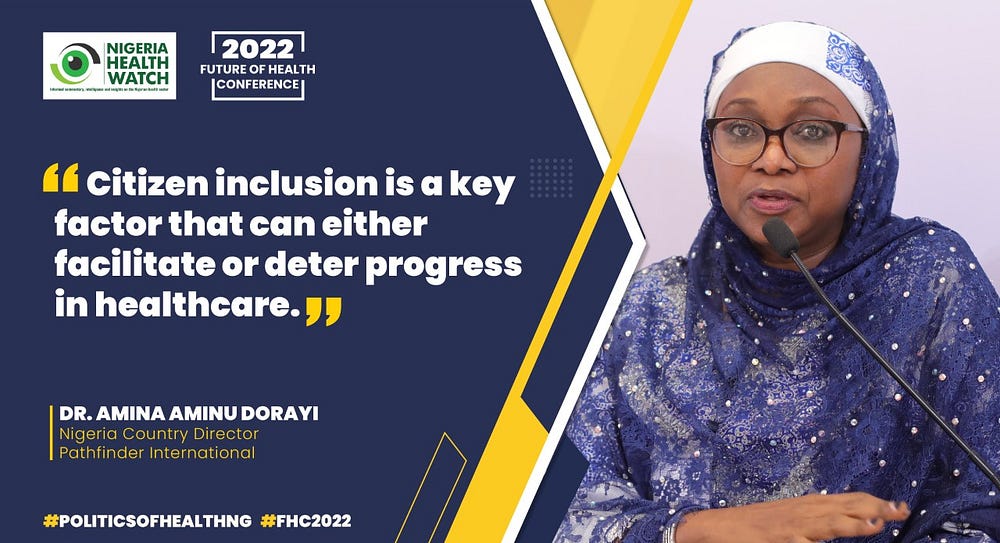
But citizens can only hold their leaders accountable if these issues are clearly presented to them without any ambiguities. Therefore, all “communication must be in simple language, devoid of too many technicalities,” said Rob Yates, Executive Director, Chatham House Centre for Universal Health Coverage. Clear communication will also help stimulate citizens to go beyond talking about the healthcare they want, to organising themselves at community level to demand for it.
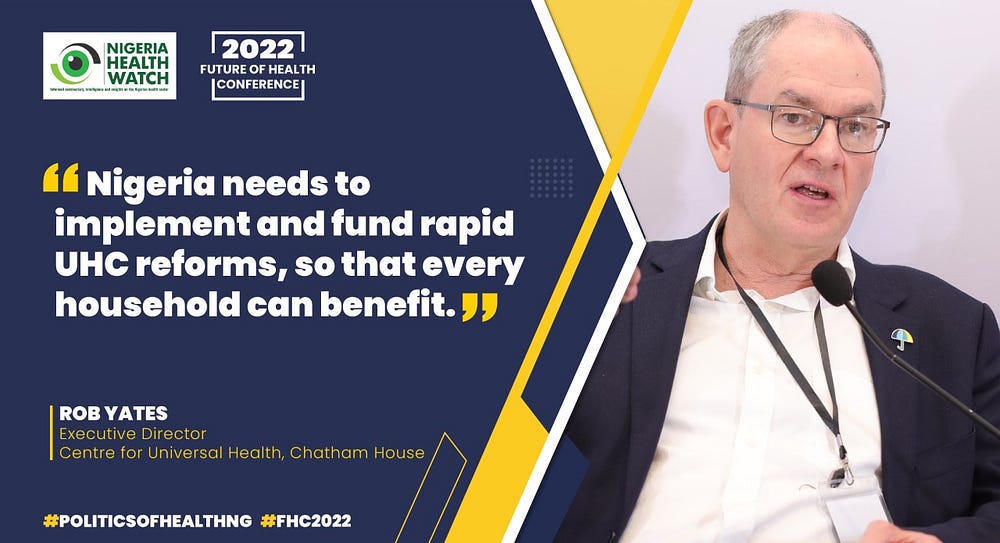
Yemi Ademolekun, Executive Director of Enough is Enough Nigeria advocated for the media and civil society organisations to work effectively to mobilise citizens to engage in what’s important to them because “we must recognise that health is critical to both human and economic development in Nigeria”. But because health news doesn’t sell newspapers, it is not often prioritised. It is therefore critical to build the capacity of the Nigerian media to report on health because only an enlightened population can demand for the healthcare they need.
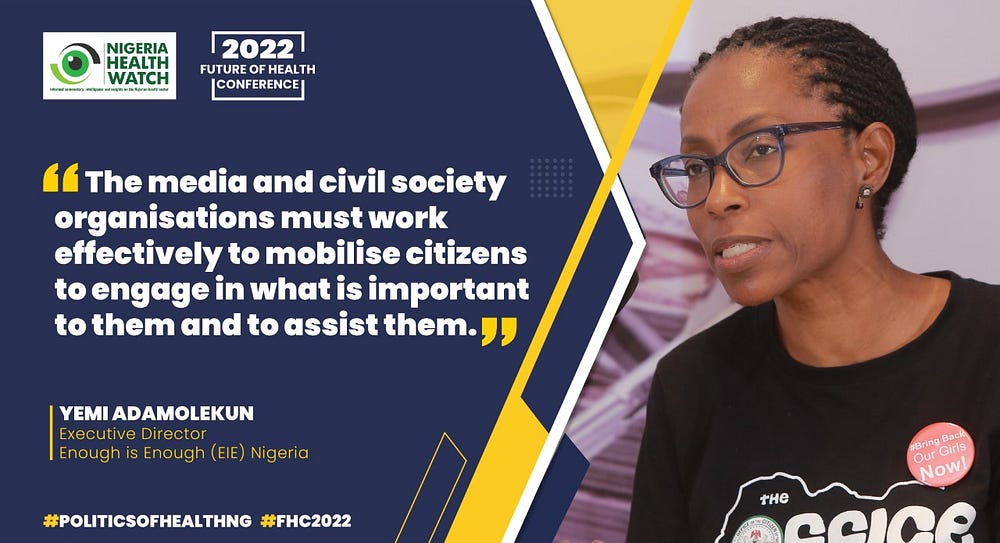
However, advocacy for increased prioritisation of health should not be directed at the federal government alone as state and local governments have their social responsibility to the people they govern. Amarakoon Bandara, Senior Economic Advisor at the United Nations Development Program (UNDP) reiterated that health problems cannot be solved in isolation; they require the holistic involvement of government at all levels. There is therefore the need for continuous advocacy to governments at the subnational level to be more involved in delivering quality healthcare to their citizens.
Political Leadership in Health — the impact of leadership on healthcare at sub-national level.
Given that Nigeria has a federal system, there is a clear need for political will to drive implementation and domestication of federal health laws at the subnational level. Dr. Obi Ikechukwu Emmanuel, Honourable Commissioner for Health, Enugu State discussed the need to domesticate laws and policies like the National Health Act, National Strategic Health Development Plan, and the National Health Policy at sub-national level. “We should institute the rule to always plan, and then when we implement, always look at evaluating what we have implemented and then try again, because this is how others must have gotten it right,” he reiterated, speaking on ensuring effective implementation.
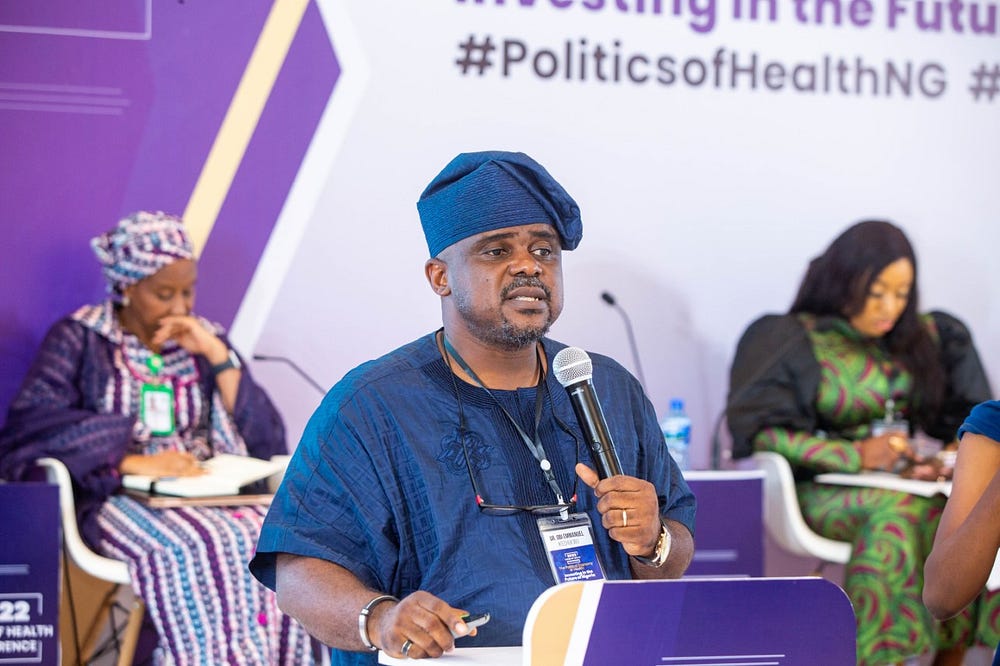
Dr. Amina Baloni, Honourable Commissioner for Health, Kaduna State spoke on the need to ensure adequate engagement with those who translate policies into action. This is to ensure that they understand the collective vision and buy into it. It is also essential for building leadership capacity at managerial, departmental and implementation levels, ensure data is used and clearly communicated and ensure accountability at all levels.
Speaking on how they engage their principals (State Governors) on health, the panelists reiterated the need to ensure fit for purpose communication with the political class. Dr Betta Edu, Former Commissioner for Health, Cross River State discussed the need for health professionals to effectively communicate to politicians what increased investment in health would mean for UHC, economic growth and job creation. “Health professionals need to step out of our silos and think about healthcare the way politicians think about healthcare, so that we can have the right framing to attract the right resources and the right interests for healthcare,” she said.
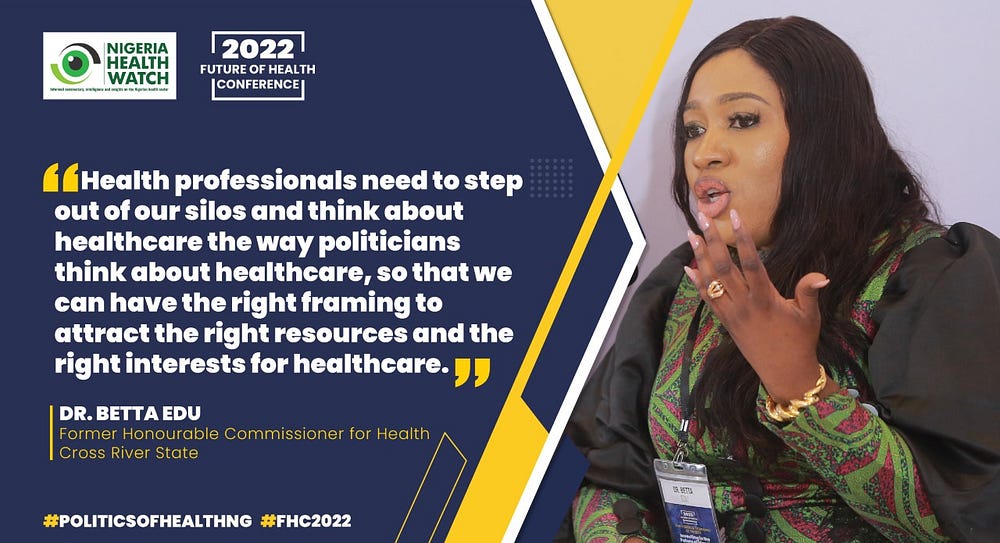
Dr Oyebanji Filani, Honourable Commissioner for Health & Human Services, Ekiti State and Chairman of the Health Commissioners Forum, said, in communicating with other social determinants of health stakeholders, he made sure to use narratives that painted a good picture of why health needed to be prioritised for each stakeholder even though the message was essentially the same. “The narrative around the messaging had to reflect what mattered to them in a way that they found and figured out that health was priority and needed to be given that approach”, he emphasised.
Panelists also discussed the need to engage communities to increase utilisation of health services and encourage them to hold the government accountable for quality health services. According to Dr Baloni, Kaduna State instituted an integrated demand generation strategy, where they actively engage the communities and get feedback on the health services that they access. Speaking on the role that communities can play in accountability, she said “We must have accountability at all levels — so a politician says I will provide free health, hold him accountable to that… if we don’t provide what we say we are going to, then we should have some level of sanctions that will make people realise that you can’t just promise”. She also highlighted the need to ensure that communication with communities is culture sensitive and effective, citing the cultural bias against insurance as a barrier to uptake of health insurance as an example.
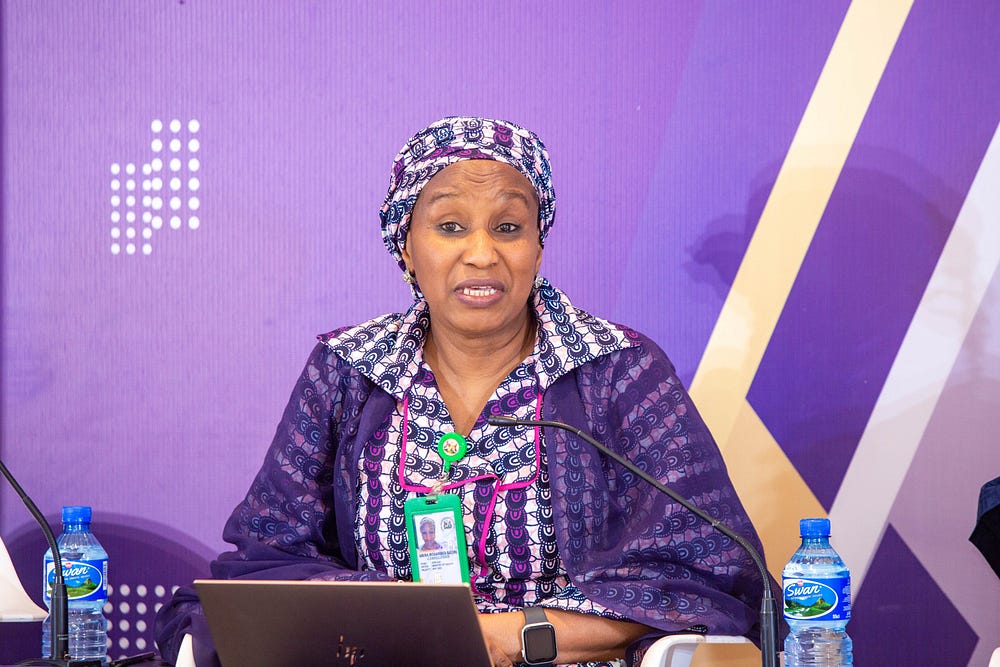
During the question-and-answer session, Hellen Beyioku-Alase, President of the Deaf Women Association of Nigeria advocated for inclusive healthcare services in facilities at the sub-national level, as well as the domestication and implementation of the recently signed National Disability Act. Dr Ikechukwu immediately committed to ensuring that sign language interpreters are employed in Enugu State hospitals, alongside other measures to ensure inclusive health services in the state.
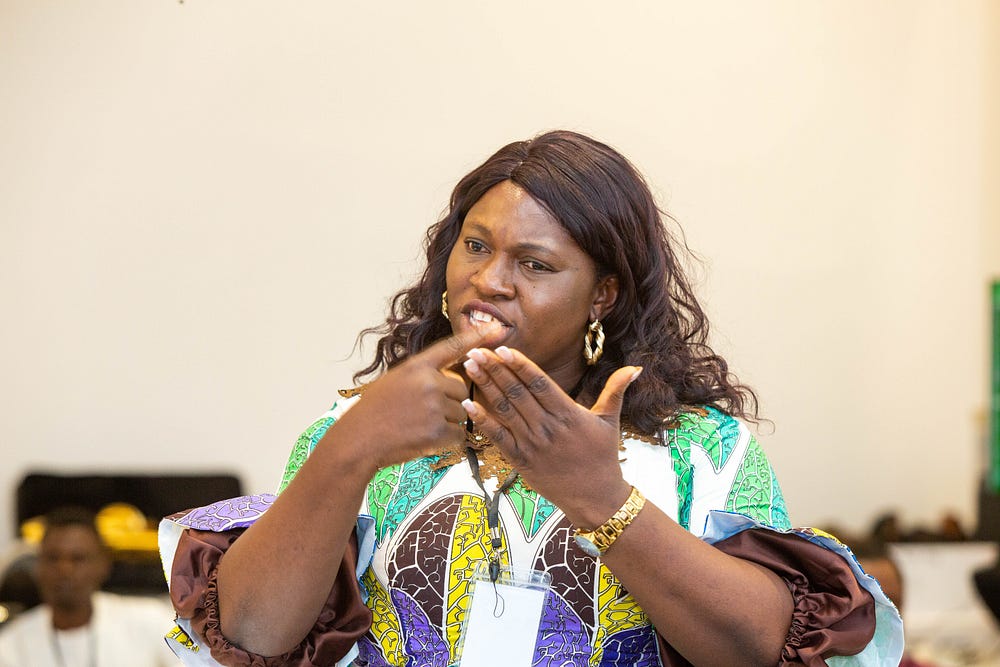
Key takeaways and recommendations for action
- Prioritising health is a political choice and to achieve UHC will require strong political leadership and commitment to improve access to affordable healthcare for all, including people living with disabilities
- The elections in 2023 and political transition has presented a policy window and created an opportunity for reform in the health sector
- Communicate in simple, clear language, which will help stimulate citizen engagement and organisation at community level to demand for quality healthcare
- Nigeria’s poor health indices can be improved if political leaders make a collective effort to make the necessary financial investments in healthcare services
- Increase the representation of women in leadership positions in the health sector.
- Employ a whole of government approach to advocacy for solutions to the problems in the Nigerian health sector — and the sub-national governments need to take more responsibility for the delivery of quality healthcare to their citizens
- Increase demand generation for quality healthcare, by effectively engaging with communities who will then hold government accountable for provision of quality healthcare services
- Civil society must represent the views of citizens and must hold politicians accountable to the promises they will make in the upcoming elections
- Domesticate and implement relevant health policies at the subnational level, periodically evaluate progress and plan again, to ensure effectiveness and efficiency
- Create an inclusive environment where citizens contribute to co-creating the health outcomes they desire and hold leaders accountable to their decisions.
But the conversation should not end here. It is time for elections to be fought and won on development issues like health reforms rather than on promises that never seem to see the light of day. The momentum around the upcoming elections must be leveraged to get Nigeria closer to achieving UHC by ensuring political leaders place healthcare top on their agenda.


